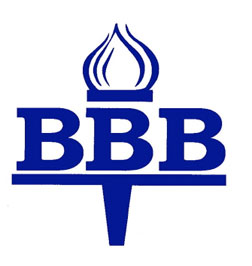The Better Business Bureau says people need to be on the look out for being scammed by potential employment offers. Central Illinois Better Business Bureau CEO and President Jessica Tharp says that employment scams have become one of the top problems that pilfer unknowing individuals out of money who are trying to find a job: “A lot of people have transitioned to working from home, and so they are looking for ways to continue working from home maybe with a new employer if they have been put out of work due to the pandemic or what have you. So, they do an interview with a business, and it can even be a video interview we’ve been told, where they actually hear a real person asking them questions about the job and eventually they are offered the job, asked to fill out some employment forms including something for direct deposit. Here’s where the scam comes in. So, you are providing your banking information, your personal information, so that they can direct deposit your paycheck – only unfortunately, we find out that’s not the case. Instead of depositing money in your account, they are in fact, withdrawing money out of it.”
Last year the BBB estimated 14 million victims with $2 billion in direct losses related to job scams. The FBI’s Internet Crime Complaint Center reported that employment scams climbed 27% over the last 3 years. Tharp says it’s not the just the typical application pilfering. She says sometimes people are asked to do other things after they believe they have a legitimate job: “People will get a check in the mail, and they have been hired either as a secret shopper or they’ve been told that they need to buy supplies. They get told, ‘Please go buy your laptop. Go buy your notebooks.’ or whatever it is with this check and they are told to keep the rest of the money. Well, in the meantime, the person puts the check in the bank, they go buy all of their supplies, and then it turns out that the check was actually fake.”
Tharp says the best way to combat employment scams is to inform yourself about the company you are applying to. Research them on the Internet is the most common way to determine if the company is legitimate. Tharp says there are a few other things anyone can do to prevent loss of money and identity theft that commonly occurs with an employment scam: “If you have to pay for the job – they are asking you to pay for something up front for training or something – they will always have a legitimate reason seemingly for these things, you should never have to pay to get a job so that’s another red flag. Consider using another e-mail address rather than your regular one when you apply for jobs. That will help you identify employers that you didn’t purposely reach out to. If you receive a job offer from someone that you didn’t apply to, that’s going to help you keep track of job offers that are definitely not legitimate. Work-from-home jobs that involve shipping or receiving packages are likely a scam, which is interesting because we have seen these scams intertwine with other scams.”
You can report employment scams to the Better Business Bureau at bbb.org; the Federal Trade Commission at reportfraud.ftc.gov; or the Internet Crime Complaint Center at ic3.gov/complaint.




